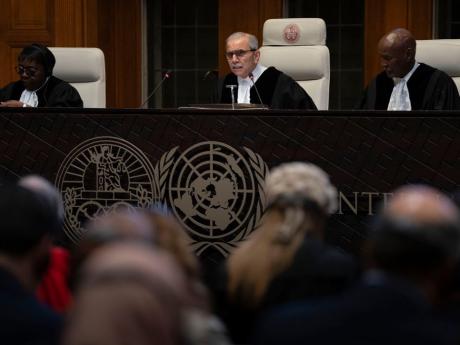ICJ orders Israel to halt military offensive in Rafah, though Israel is unlikely to comply
THE HAGUE, Netherlands (AP) — The United Nations' top court ordered Israel on Friday to immediately halt its military offensive in the southern Gaza city of Rafah, but stopped short of ordering a cease-fire for the enclave.
Although Israel is unlikely to comply with the order, it will ratchet up the pressure on the increasingly isolated country.
Criticism of Israel's conduct in the war in Gaza has been growing, particularly since it turned its focus to Rafah.
This week alone, three European countries announced they would recognise a Palestinian state, and the chief prosecutor for another international court requested arrest warrants for Israeli leaders, along with Hamas officials.
Israeli Prime Minister Benjamin Netanyahu is also under some pressure at home to end the war, which was triggered when Hamas-led militants stormed into Israel, killing 1,200 people, most civilians, and taking roughly 250 hostage.
Thousands of Israelis have joined weekly demonstrations calling on the government to reach a deal to bring the hostages home, fearing time is running out.
“The charges of genocide brought by South Africa against Israel at the International Court of Justice in the Hague are false, outrageous and morally repugnant,” Netanyahu's government said in response to the ruling, maintaining its position that the military hasn't and won't target civilians.
South Africa was able to bring its case because it and Israel are signatories to the U.N.'s Genocide Convention, which includes a clause allowing the court to settle disputes over it.
Although the ruling is a blow to Israel's international standing, the court doesn't have a police force to enforce its orders. In another case on its docket, Russia has ignored the court's 2022 order to halt its full-scale invasion of Ukraine.
Rafah is in the southernmost part of the Gaza Strip, on the border with Egypt, and over 1 million people sought refuge there in recent months after fleeing fighting elsewhere, with many of them living in teeming tent camps. Israel has been vowing for months to invade Rafah, saying it was Hamas' last major stronghold, even as several allies warned that an all-out assault would spell disaster.
Israel started issuing evacuation orders about two weeks ago as it began operations on the edge of the city. Since then, the army says an estimated 1 million people have left as forces press deeper inside.
Rafah is also home to a critical crossing for aid, and the UN says the flow of aid reaching it has plunged since the incursion began, though commercial trucking has continued to enter Gaza.
The court ordered Israel to keep the Rafah crossing open, saying “the humanitarian situation is now to be characterised as disastrous.”
Follow The Gleaner on X, formerly Twitter, and Instagram @JamaicaGleaner and on Facebook @GleanerJamaica. Send us a message on WhatsApp at 1-876-499-0169 or email us at onlinefeedback@gleanerjm.com or editors@gleanerjm.com.

